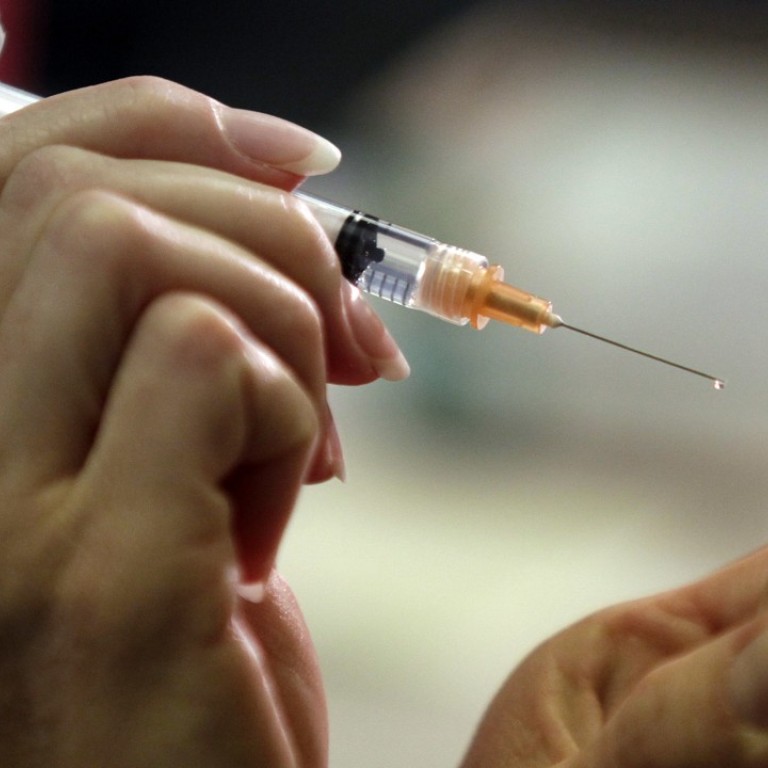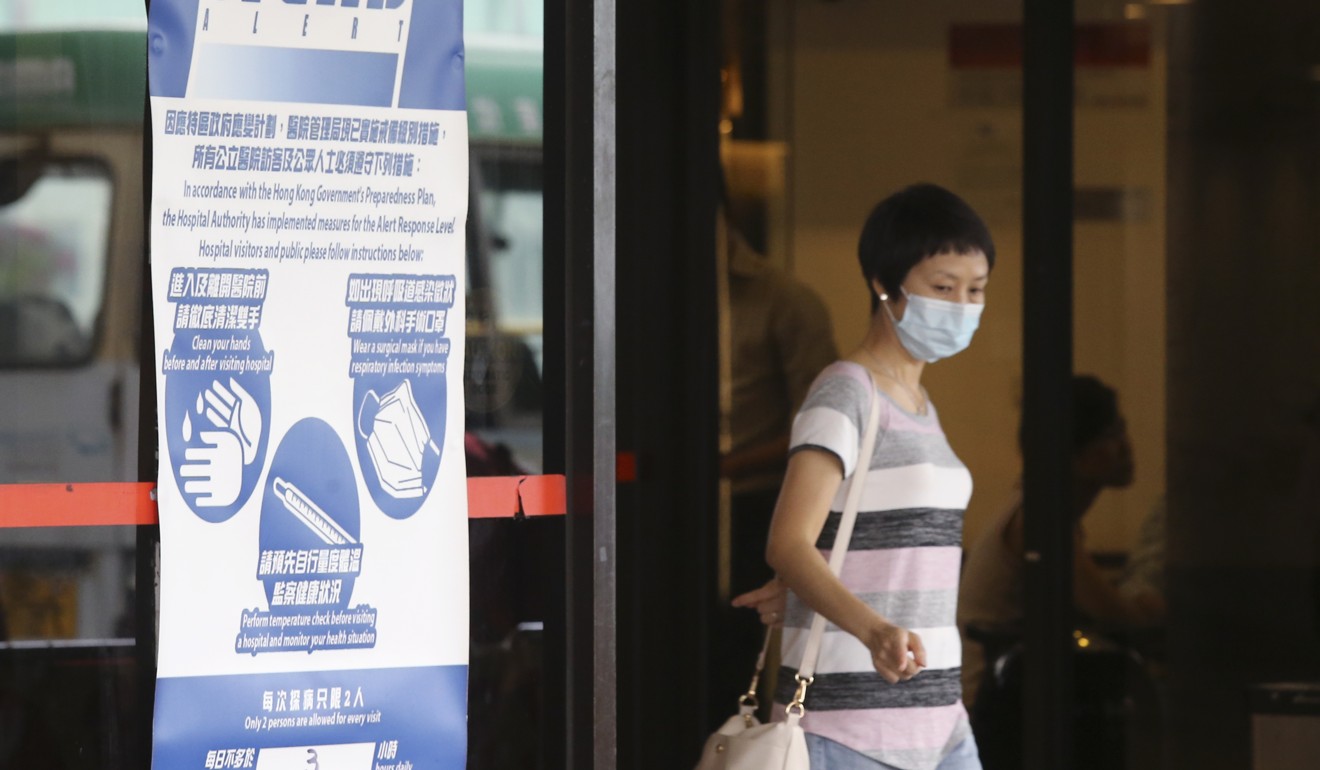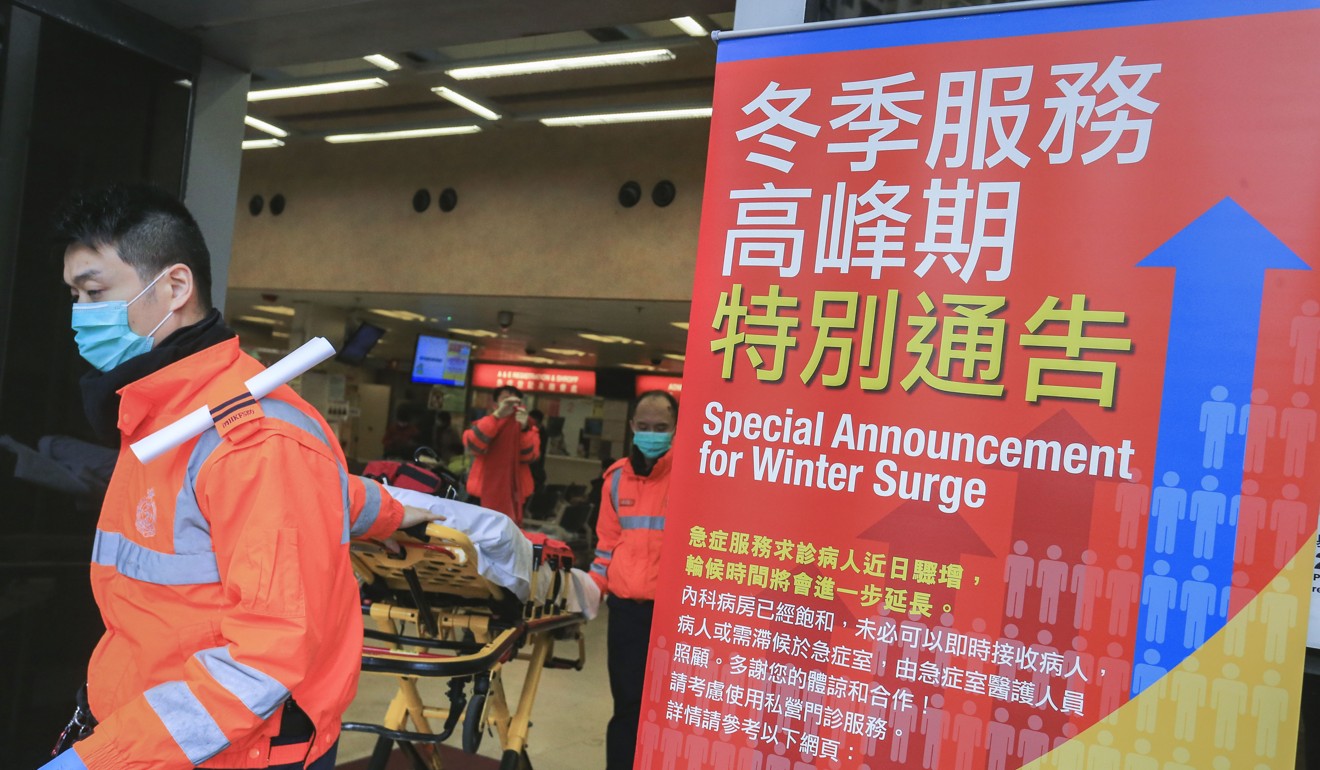
Hong Kong’s first nasal spray flu vaccine should be trialled in mainland China to speed up process, top HKU microbiologist says
Leading flu expert Yuen Kwok-yung says method is fastest way to get product to market, after outbreak claims 83 lives this year
Hong Kong’s first locally developed nasal spray flu vaccine could be made available in three years by conducting clinical trials in mainland China and seeking approval from the national drug authority instead of waiting for endorsement from local officials, according to the city’s top microbiologist.
University of Hong Kong professor Yuen Kwok-yung on Sunday said he hoped the spray would be in use before his retirement at the end of 2021, to help increase vaccination rates in the city. His comments come as a deadly winter flu outbreak places huge pressure on public hospitals.
Yuen said he expected the peak of the current flu outbreak to last at least a few more weeks, and warned that another outbreak, this time influenza A, was likely to follow the current spread of influenza B. He urged groups at high risk of infection to get a flu jab.
Private doctors however said the supply of injected vaccine in the city was insufficient to meet their needs and many clinics had found themselves short of the substance for weeks due to a surge in patient numbers.

The high demand has also stretched to breaking point understaffed public hospitals, leading to an outcry from nurses which prompted Hong Kong leader Carrie Lam Cheng Yuet-ngor last Tuesday to pump HK$500 million (US$64 million) into hospitals to cope with the flu outbreak.
Since January 7 Hong Kong has recorded 158 flu infections in adults that saw serious complications. Of those, 83 patients had died as of January 31. Eleven children had been classed as serious cases, and two had died, including a three-year-old girl and a five-year-old boy. Both had not been vaccinated.
Hong Kong nurses pushed to breaking point as city tackles winter flu season, union chief says
“Why are so many people unwilling to have the vaccine? One reason is that they have to receive it by injection every year, while in Europe and the US all children are vaccinated by nasal spray,” said Yuen, a leading flu expert and chair professor of infectious diseases at HKU.
Statistics from Hong Kong’s Food and Health Bureau showed that among 123 flu-associated child deaths in the past five years, only 12 per cent had received a seasonal influenza vaccine. The overall vaccination rate for children is only 16.7 per cent.

Yuen believed the convenience of a nasal spray would help increase vaccination rates. According to him, the Hong Kong government tried to order tailor-made spray vaccines from the US when Dr York Chow Yat-ngok was health minister from 2008 and 2012. But the American pharmaceutical factory involved refused to open a new production line for a market as small as Hong Kong.
He said he hoped to see the locally developed spray vaccine made available before he retired at the age of 65, at the end of 2021.
A team consisting of researchers from HKU and Polytechnic University had developed a seed for the spray vaccine and planned to have the product manufactured, tested and approved across the border to save time, he said.
“The fastest way is to conduct clinical trials on the mainland, apply for approval from the China Food and Drug Administration, and reintroduce it to Hong Kong,” he said.
Four takeaways about the deadly flu virus... and why historians are concerned
He explained that it took a very long time to conduct local clinical trials and to seek the Department of Health’s approval. The department also gives the green light to all new drugs approved by the US Food and Drug Administration.
Lawmaker and private doctor Kwok Ka-ki said there was a shortage of vaccine, and many parents did not want the trouble of bringing their kids to a clinic for a jab. He urged the government to arrange an injection scheme at schools.
“There is simply not enough supply of flu vaccine in the private clinics for everyone,” Kwok said.
In response to the recent surge in demand, drug maker Sanofi Pasteur has redeployed “a significant amount” to Hong Kong, with the earliest arrival date set for before Lunar New Year, a spokesman said.

